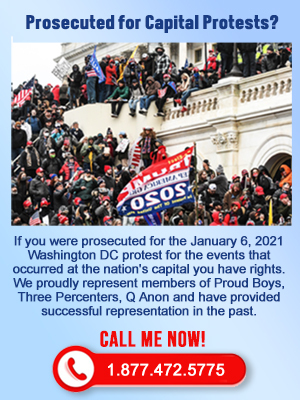Welfare fraud is a very serious crime in Florida, that can be classed as a misdemeanor or felony, depending on how much public assistance was received. Political pressures are playing a big part in this, and Florida vigorously prosecutes offenders.
The term “welfare fraud” can refer to various types of illegal conduct. These include, but are not limited to:
- Welfare Fraud-Failure to Disclose a Material Fact – The defendant knew that he or she failed to disclose facts by making false statement or using other fraudulent means; these facts were used to qualify for benefits; and the benefits came from federally or state funded programs.
- Welfare Fraud-Aiding or Abetting – The defendant willingly helped someone in a failure to disclose so that they were able to receive benefits.
- Welfare Fraud-Change in Circumstances – When the defendant knowingly doesn’t report a change in his or her circumstances, so that he/she can continue to receive benefits.
- Welfare Fraud-Food Stamps and Medical Services – When someone knowingly receives medical services and food stamps without being entitled to these.
Fraudulent, by definition, means that someone intends to suppress the truth or willingly perpetuates a deception. Knowingly, by definition, means that someone choose to engage in the act. Even if someone repaid the services or assistance they received, they will still be charged with the crime.
Laws and Penalties
Welfare can be classed either as a misdemeanor or as a felony. This is generally determined by reviewing the value of the benefits or services that were obtained. If the value of the public assistance that was received is up to $200 and if this amount has been received in the past 12 months, it will be classed as a first degree misdemeanor. Penalties include up to a maximum of 12 months in prison or probation and a fine of up to $1,000. Additionally, restitution may be ordered. If the value is above $200, however, the charge is upgraded to a 3rd degree felony, leading to a maximum prison sentence of five years, or probation, and a $10,000 fine, as well as restitution.
Welfare Fraud Defenses
A large element of a successful fraud prosecution is demonstrating intent. Because this is quite hard, there are many different defenses used commonly by attorneys in these cases. These include:
- Contesting that the defendant was aware of the fact that he/she failed to disclose something, including a change in circumstances.
- Contesting that the materials that were knowingly not disclosed were actually material.
- Suggesting that mistakes have been made, which does not equate to fraud.
- Contesting that information was not disclosed in order to remain eligible for benefits.
- Contesting that the program is funded by the state or federal government.
- Contesting that the statement was not false at the time it was made.
- Contesting that the non-disclosure led to a decision to supply someone with benefits.
- Putting various innocent explanations for the conduct of the defendant forward.
- Unlawful searches and seizures.
Sometimes, it is very difficult to find any kind of defense. However, through negotiations with the Office of the State Attorney, mitigation can happen. This is particularly true if someone is a first-time offender and when it is proven that keeping someone out of prison will make them able to pay restitution.
Statute of Limitations
The statute of limitations on welfare fraud are very complicated. Firstly, this is because it can be trialed in different ways. Secondly, although the average statute of limitation is five years, it tends to be five years from the moment the fraud was discovered, not five years from the date the fraud was committed.
Welfare Fraud Cases
- Florida sheriff’s undercover sting busts $2.8M welfare fraud scam – This was in relation to a food stamp fraud scam that made individuals richer by $3 million, rather than helping the poor.
- Muncie woman charged with welfare fraud – A woman is accused of continuing to claim around $14,000 in benefits for her disabled son, after he no longer lived in her property.
- Tampa police sergeant fired, charged with welfare fraud – A police officer was found to be conspiring with an inmate, whose daughter she had adopted, to commit fraud on food stamps and more, which she used to purchase groceries.
- Scottish aristocrat’ sentenced 21 months in prison for welfare fraud – A couple claiming to be Scottish aristocrats lived on a yacht off the coast of Florida, fraudulently claiming welfare benefits in both Florida and Minnesota. “Lord” Colin Chisholm III received a 21 month jail sentence for his part in the scam.
- Misreporting income can land Florida fraudsters welfare benefits – It has been found that around 70% of all welfare fraud claims are linked to non-reporting or under reporting of income, which is currently being addressed.
REFERENCES:
